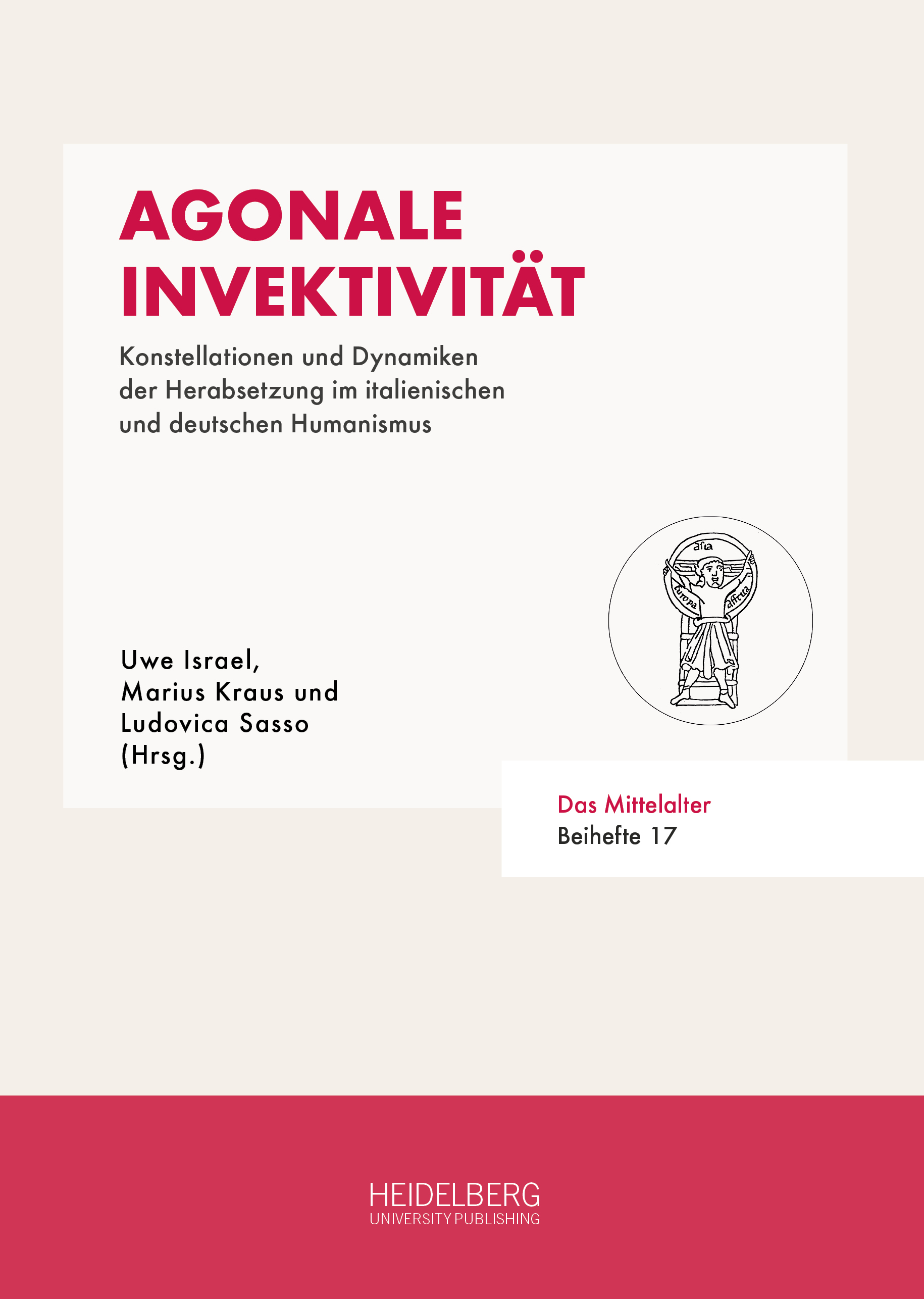How to Cite
License (Chapter)

This work is licensed under a Creative Commons Attribution-NonCommercial-ShareAlike 4.0 International License.
Identifiers (Book)
Published
“Nemo alteri dicat convicia turpia inhonesta seu alia”
Die scholastische Streitkultur der Universitäten und die Humanisten
Abstract Starting from the “Erfurt Poets’ Controversy” around 1513, this article outlines the culture of dispute at German universities in the age of humanism, which was characterised by increasing polemical intensification. The humanist invective in the academic context is interpreted as an instrument of assertion for a social group in an environment in which the humanists slowly worked their way up “from outsiders to insiders” (Eckhard Bernstein). To further classify these findings, the role of dispute and argument in scholastic scholarship is discussed. In scholastic science, disputatio was a central form of knowledge and communication, which was, however, restrained by rules and rituals. The essay links Petrus Abaelardus (12th century), who did not shy away from invective, to the restrictive normative regulations on the culture of argument at the late medieval university. The scholastic prohibition of polemical disputes was intended not least to safeguard the dignity of scholars and the claim to validity of the science they represented. Humanists who insulted and ridiculed each other or their scholastic colleagues put this well-rehearsed system under severe strain, but at the same time formed part of a deeper process of change in the academic way of life as a whole.






